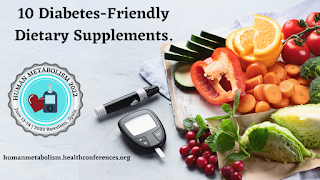10 Diabetes-Friendly Dietary Supplements.
It doesn't have to be difficult to choose the finest things to consume if you have diabetes. To keep things simple, your main objective should be to maintain your blood sugar levels under control. It is also critical to consume foods that aid in the prevention of diabetic complications such as heart disease. Diabetes prevention and management can be greatly aided by a healthy diet.
Fatty fish: Fatty fish include omega-3 fats, which can aid in the reduction of inflammation and other cardiovascular complications and stroke. It's also high in protein, which is crucial for blood sugar control.
Leafy greens: Leafy green veggies are high in nutrients such as
vitamin C and antioxidants, which protect your heart and eyes.
Avocados: Avocados contain less than one gram of sugar and have
been linked to better overall diet quality. Avocados may potentially have
diabetes-prevention effects.
Eggs: Eggs may reduce heart disease risk factors, promote healthy
blood sugar control, safeguard eye health, and keep you feeling full.
Chia seeds: Chia seeds are high in fiber, which may aid with weight
loss. They also aid in the maintenance of blood glucose levels.
Nuts: Nuts are a nutritious supplement to a well-balanced diet.
They include a lot of fiber and can help lower blood sugar and LDL (bad)
cholesterol levels.
Flaxseeds: Flaxseeds may help reduce inflammation, reduce the risk
of heart disease, lower blood sugar levels, and enhance insulin sensitivity.
Strawberries: Strawberries are minimal sugar fruits with
powerful anti-inflammatory qualities that may aid in the treatment of insulin
resistance.
Garlic: Garlic aids in the reduction of blood sugar, inflammation,
LDL cholesterol, and blood pressure in diabetics.
Apple cider vinegar: Although apple cider vinegar may help reduce
fasting blood sugar levels, additional study is required to validate its health
advantages.
Recognizing which foods to limit
is just as essential as determining which foods to include in a diabetic diet.
This is due to the high
carbohydrate and added sugar content of many meals and beverages, which can
cause blood sugar levels to jump. Other foods may have an adverse effect on
heart health or lead to weight gain.

Comments
Post a Comment